quantum
Latest

Nobel Prize in Chemistry awarded to trio of quantum dot researchers
The 2023 Nobel Prize in Chemistry winners contributed to the discovery and development of quantum dots. Moungi G. Bawendi, Louis E. Brus and Alexei I. Ekimov will share the honors.
Will Shanklin10.05.2023
JBL's first gaming microphone is the USB 'Quantum Stream'
JBL has expanded its Quantum gaming line with new products, including its first USB microphone aimed at streamers and podcasters.
Mariella Moon01.04.2022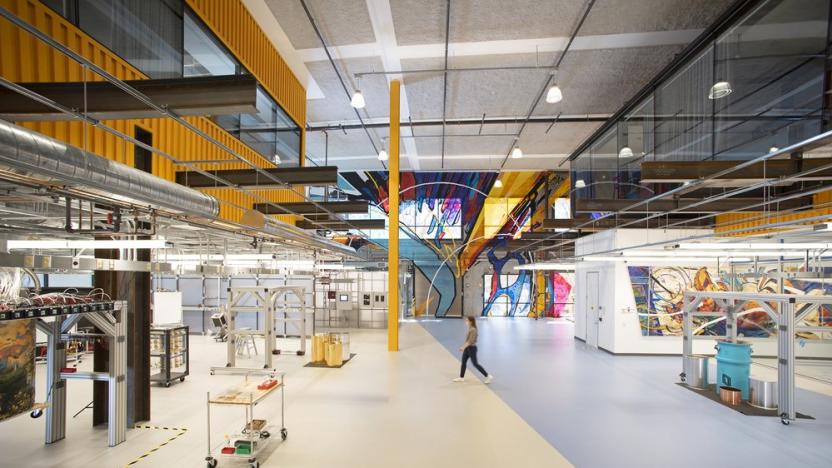
Google plans to build a commercial quantum computer by 2029
The company has a new quantum AI campus in Santa Barbara.
Jessica Conditt05.18.2021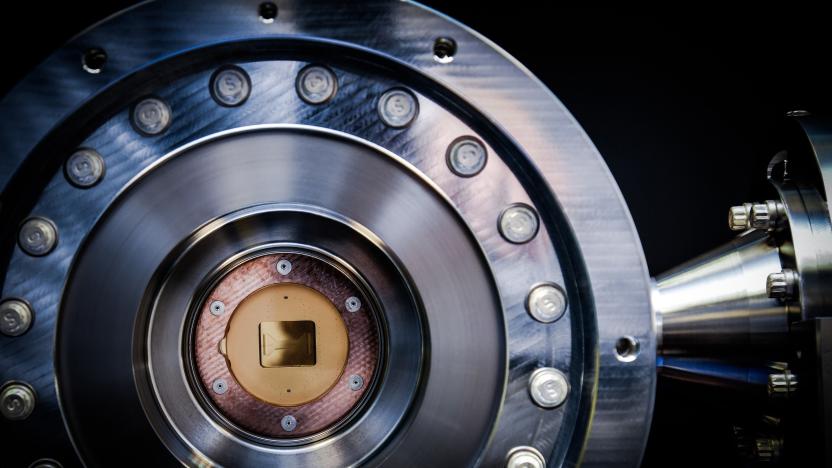
Honeywell will let other companies tap into its quantum computer
Honeywell's enterprise customers can now access the company's 64 quantum volume computer.
Igor Bonifacic06.18.2020
Samsung and SK Telecom reveal world’s first smartphone with quantum security tech
The Quantum Random Number Generator makes it much harder to hack some services.
Rachel England05.14.2020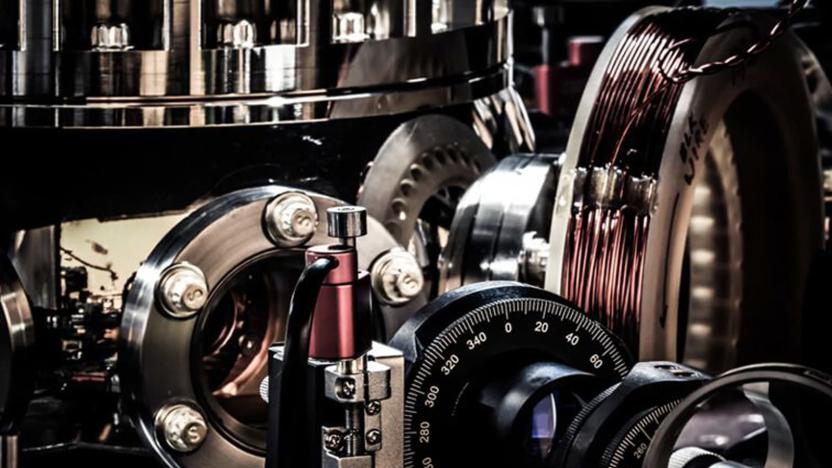
Honeywell says it built the world's most powerful quantum computer
When it comes to quantum computers, we tend to think of companies like Google and IBM as the big players in the field, but there could soon be more competition in the space. Honeywell says sometime in the next three months it will unveil a quantum computer that is at least twice as powerful as any current device.
Igor Bonifacic03.03.2020
Amazon offers quantum computing on its AWS servers
Quantum computing is arguably the next major milestone for tech companies, but unless you're the likes of Google or IBM, it's a fairly costly endeavor. But Amazon -- which up until now has been pretty quiet on the quantum front -- has plans to offer a quantum computing service to companies through the internet, thereby eliminating some of the costs and other challenges associated with pursuing the technology.
Rachel England12.03.2019
AI can simulate quantum systems without massive computing power
It's difficult to simulate quantum physics, as the computing demand grows exponentially the more complex the quantum system gets -- even a supercomputer might not be enough. AI might come to the rescue, though. Researchers have developed a computational method that uses neural networks to simulate quantum systems of "considerable" size, no matter what the geometry. To put it relatively simply, the team combines familiar methods of studying quantum systems (such as Monte Carlo random sampling) with a neural network that can simultaneously represent many quantum states.
Jon Fingas07.05.2019
IBM's latest quantum computer is a 20-qubit work of art
Last year, IBM hauled a 50-qubit quantum computer to CES. Or, rather, it brought the eye-catching bits -- an intricate collection of tubes and wires that resembled a steampunk chandelier -- and left the more cumbersome cooling and power-management parts at home. The complete system, housed at a research lab in Yorktown Heights, New York, was spread out over a large room. It was a functional but totally inelegant design, according to Bob Sutor, vice president of IBM Q Strategy and ecosystem.
Nick Summers01.08.2019
Quantum 'compass' promises navigation without using GPS
GPS is vital to modern navigation, but it's extremely fragile. Never mind coverage -- if a satellite fails or there's a jamming attack, it quickly becomes useless. Scientists may have a much more robust answer, though. Scientists have demonstrated a "commercially viable" quantum accelerometer that could provide navigation without GPS or other satellite technology. The device uses lasers to cool atoms to extremely low temperatures, and then measures the quantum wave properties of those atoms as they respond to acceleration.
Jon Fingas11.11.2018
Vizio’s new P-series TV is its brightest yet
Today, Vizio announced a new flagship display, the 2018 P-Series Quantum 4K HDR Smart TV. It has up to 2,000 nits of peak brightness and is billed as Vizio's brightest TV so far. The bezel-less display also has an Active Full Array Max backlight with 192 local dimming zones for the company's "purest black levels." Quantum Color Spectrum technology means that this display can produce over one billion colors. A 240Hz refresh rate equals a natural, smoother picture. This 65-inch model is priced at $2,200.
Swapna Krishna04.10.2018
After Math: When it all comes crashing
It's turning out to be a great week for falling objects. China's first space station is set to reenter the Earth's atmosphere, IBM's 50-qubit processor record was felled by Google's latest invention, the FBI and Geek Squad's cozy narc relationship has been revealed and the White House has decided it wants to be able to shoot civilian drones out of the skies. Numbers, because how else will you gauge how fast you're falling?
Andrew Tarantola03.11.2018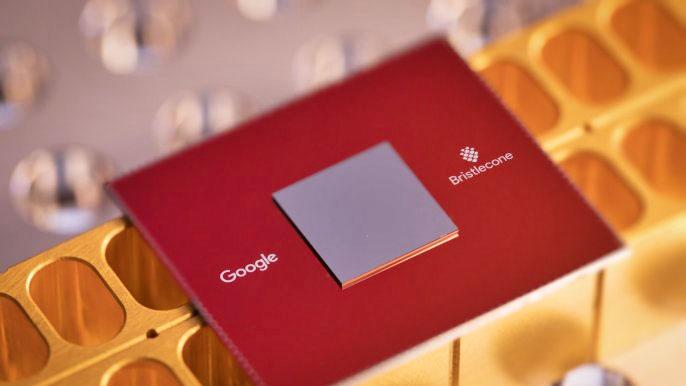
Google backs its Bristlecone chip to crack quantum computing
Like every other major tech company, Google has designs on being the first to achieve quantum supremacy -- the point where a quantum computer could run particular algorithms faster than a classical computer. Today it's announced that it believes its latest research, Bristlecone, is going to be the processor to help it achieve that. According to the Google Quantum AI Lab, it could provide "a compelling proof-of-principle for building larger scale quantum computers."
Rachel England03.06.2018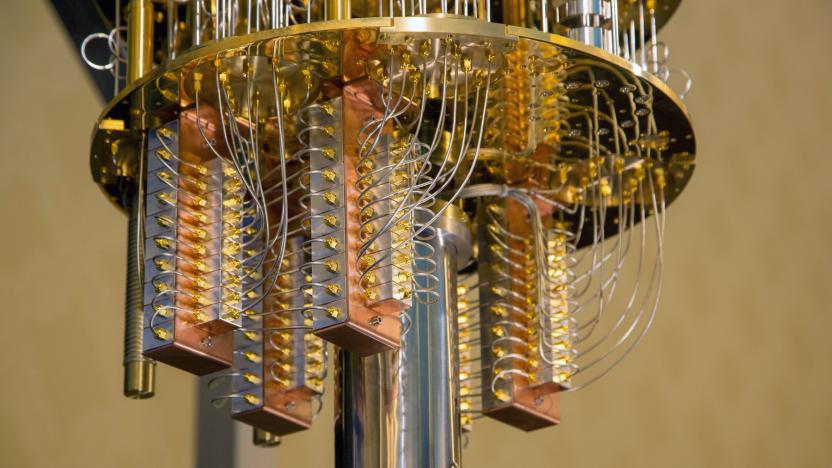
This is what a 50-qubit quantum computer looks like
From afar, it looks like a steampunk chandelier. An intricate collection of tubes and wires that culminate in a small steel cylinder at the bottom. It is, in fact, one of the most sophisticated quantum computers ever built. The processor inside has 50 quantum bits, or qubits, that process tasks in a (potentially) revolutionary way. Normally, information is created and stored as a series of ones and zeroes. Qubits can represent both values at the same time (known as superposition), which means a quantum computer can theoretically test the two simultaneously. Add more qubits and this hard-to-believe computational power increases. Last November, IBM unveiled the world's first 50-qubit quantum computer. It lives in a laboratory, inside a giant white case, with pumps to keep it cool and some traditional computers to manage the tasks or algorithms being initiated. At CES this year, the company brought the innards -- the wires and tubes required to send signals to the chip and keep the system cool -- so reporters and attendees could better understand how it works. The biggest challenge, IBM Research Vice President Jeffrey Welser told me, is isolating the chip from unwanted "noise." This includes electrical, magnetic and thermal noise -- just the temperature of the room renders the whole machine useless.
Nick Summers01.09.2018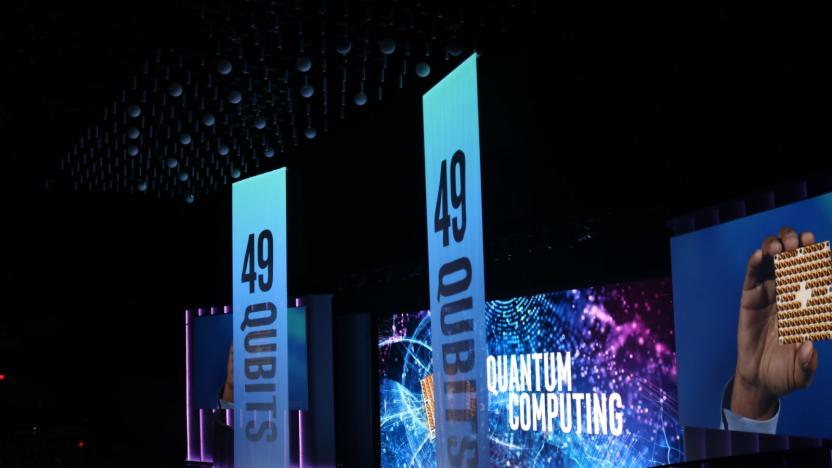
Intel’s quantum computing efforts take a major step forward
It's been almost three months since Intel announced a 17-qubit superconducting chip, meant to pave the way for a future powered by quantum computers. Today at CES, Intel CEO Brian Krzanich showed off its latest superconducting test chip, the 49-qubit Tangle Lake.
Aaron Souppouris01.08.2018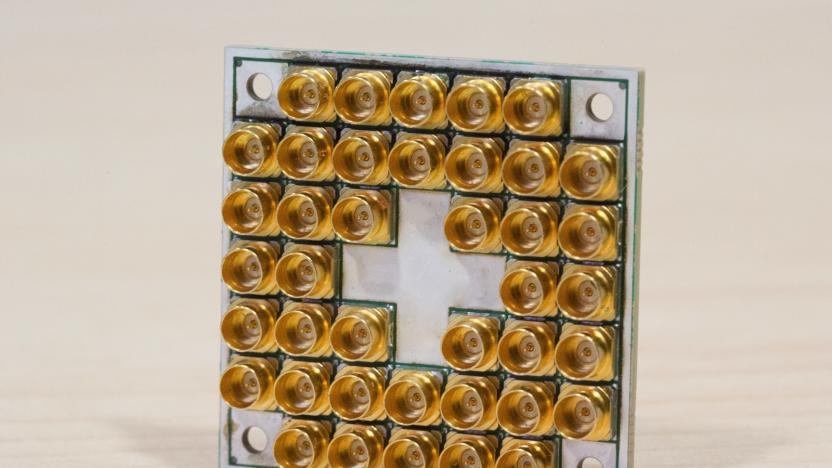
Intel created a superconducting test chip for quantum computing
Quantum computing is the next big technological revolution, and it's coming sooner than you might think. IBM unveiled its own quantum processor this past May, scientists have been experimenting with silicon-laced diamonds (and basic silicon, too) as a quantum computing substrate, Google is already looking at cloud-based solutions and Microsoft is already creating a new coding language for the technology. Now Intel has taken another big step towards a quantum computing reality: the company has created a new superconducting chip using advanced material science and manufacturing techniques, and delivered it to Intel's research partner in the Netherlands, QuTech.
Rob LeFebvre10.10.2017
Scientists made the first 'unhackable' quantum video call
Following extensive testing earlier this year, China has now deployed its quantum communications work in the form of the first ever quantum-safe video call. The call, between the Chinese Academy of Sciences and the Austrian Academy of Sciences, marks a secure communications breakthrough which will have a huge impact on the way sensitive information is shared between distant parties.
Rachel England10.02.2017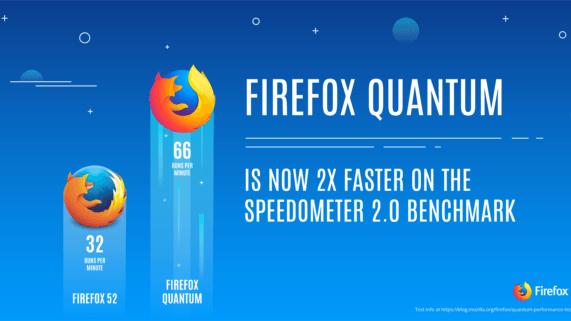
Firefox Quantum beta promises to double your browser speeds
After announcing plans for Project Quantum late last year, Mozilla has now launched its overhauled Firefox in beta stage, making it an increasingly imminent challenge to Chrome. And it's a very feasible challenge too, given the browser's improvements. Speed is its main selling point -- Mozilla says Quantum is roughly twice as fast as Firefox was a year ago. This is largely due to a new CSS engine written in Mozilla's programming language, Rust, which operates across cores rather than as a single memory-hungry process on one core. It also priorities tabs, loading up in-use tabs before background ones, which Mozilla says makes Quantum 30 percent more RAM-efficient than Chrome. The team has also tracked down and eliminated 469 bugs that were contributing to slowness.
Rachel England09.27.2017
IBM's simulated molecule could lead to drug and energy advances
IBM's quantum computer has made a small advance that could ultimately lead to a major chemistry breakthrough. A team of IBM researchers has successfully used IBM Q to accurately simulate the molecular structure of beryllium hydride (BeH2), the largest molecule ever to be simulated by a quantum computer to date. This is pretty important, because simulating any molecule on a quantum level is no easy task, never mind a big one.
Rachel England09.14.2017
China is launching an 'unhackable' quantum messaging service
China has been active in the field of quantum cryptography lately, and now it's gearing up to use the technology in an "unhackable" government messaging service. While existing internet and telephone cables can easily be tapped, quantum networks send messages embedded in particles of light. If a third party tries to hack the network, the quantum nature of the particles will distort the communication, causing it to be lost.
Rachel England07.25.2017